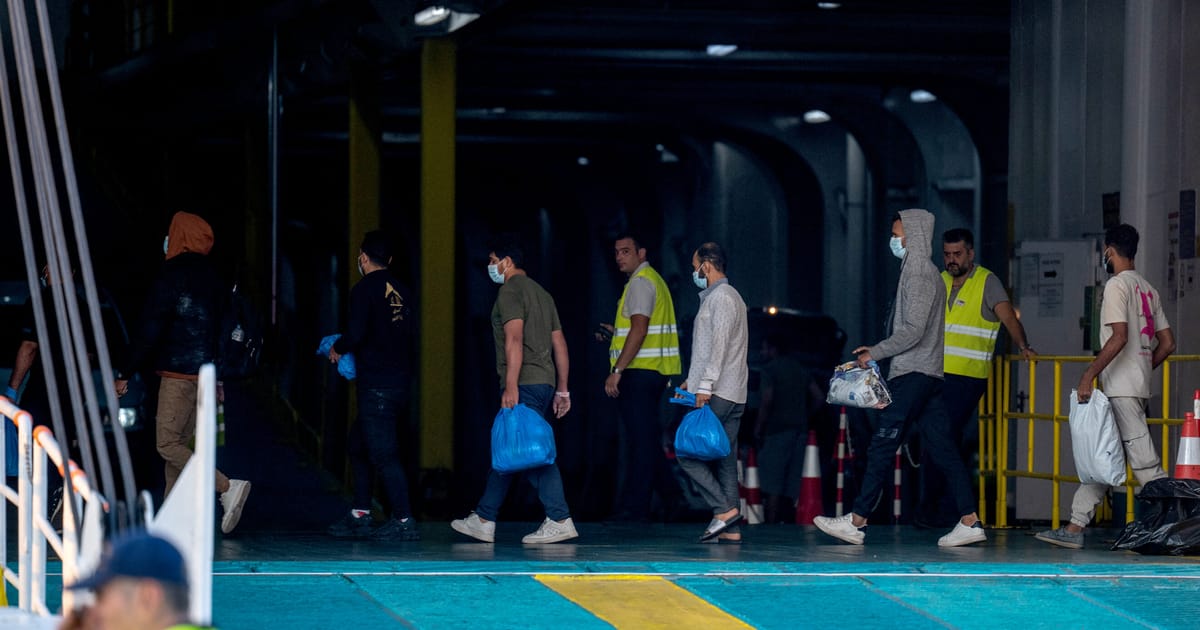

In today’s interconnected world, significant events are unfolding across various arenas—migration policy, art, international diplomacy, and sports. These developments provide a diverse tapestry of human experience and decision-making, reflecting our shared challenges and aspirations.
In Copenhagen, EU interior ministers recently gathered to discuss pressing issues of migration. Greece has strongly encouraged the European Union to adopt a more assertive stance on migration policies. The discussions underscored the complexities of managing migration at a continental level, balancing humanitarian concerns with national security and economic interests. As nations strive to harmonize their approaches, these conversations reveal both the difficulties and potential pathways forward in addressing large-scale human movement.
Meanwhile, across the European continent, an artistic debate is unfolding. The Irish Museum of Modern Art (IMMA) found itself at the center of a discourse on censorship after suspending the screening of Derek Jarman’s film, “The Angelic Conversation,” due to a complaint about the depiction of a gay kiss. The museum has since clarified its position, insisting it remains committed to artistic diversity and freedom of expression. The museum’s director, Annie Fletcher, emphasized that IMMA has no intention of censoring LGBTQ+ artists or their work. This situation brings to light the ongoing balance between artistic expression and public sensitivity, underscoring the vital role of art in societal dialogue.
In the realm of international politics, UK Prime Minister Keir Starmer faces mounting pressure from his cabinet to recognize Palestinian statehood. This call for recognition comes amid growing global concern over Israel’s actions in Gaza, particularly regarding the alleged humanitarian impacts of its policies. Within the cabinet, figures like Wes Streeting have voiced their distress over the situation, urging the UK to take a more decisive role. This internal push highlights the broader geopolitical complexities and the sensitivities involved in international relationships and peacebuilding efforts.
Adding another layer to the geopolitical landscape, Cardinal Pierbattista Pizzaballa, the Catholic Latin patriarch of Jerusalem, has criticized Israel’s policies in Gaza following a recent visit. His statements focused on the severe restrictions on food and medicine, emphasizing the dire humanitarian needs he witnessed. Such declarations from religious and moral leaders again bring into sharp focus the human cost of political and military decisions, encouraging dialogue and potentially influencing future actions toward peace and stability.
Turning to sports, Qatar is setting its sights on hosting the Olympic and Paralympic Games in 2036. The nation has officially expressed its interest and is currently in discussions with the International Olympic Committee. Having previously hosted the men’s football World Cup in 2022, Qatar is prepared to adjust its plans to accommodate a different time slot if necessary, highlighting its flexibility and commitment to hosting global sporting events. This initiative represents Qatar’s ambition to continue positioning itself as a central player on the international sporting stage, fostering international unity and cultural exchange through sports.
Each of these stories—ranging from migration and art to international politics and sports—reminds us of the diverse challenges the world faces. Yet, they also reflect the profound potential for human progress through dialogue, creativity, and collaborative solutions. As we continue to witness and engage with these developments, the underlying themes of cooperation, understanding, and resilience remain steadfast guides in our collective journey forward.
Source: {link}
